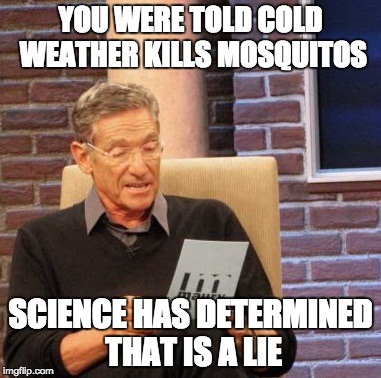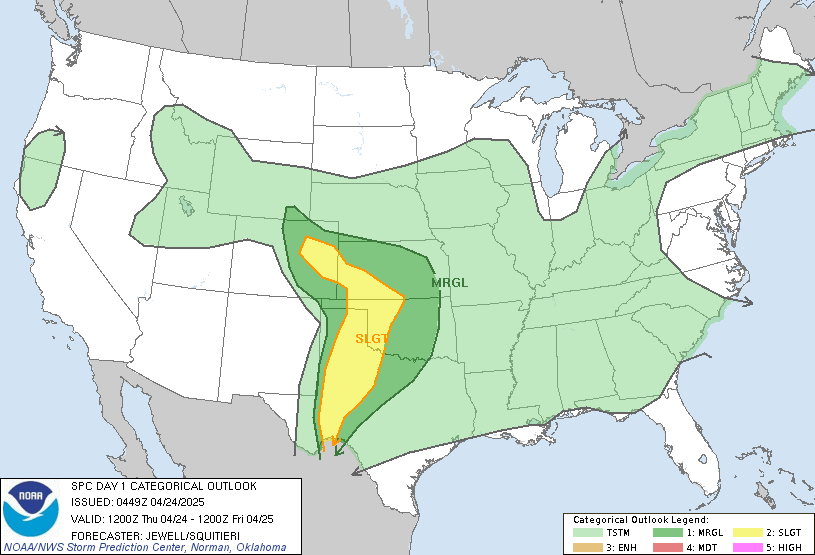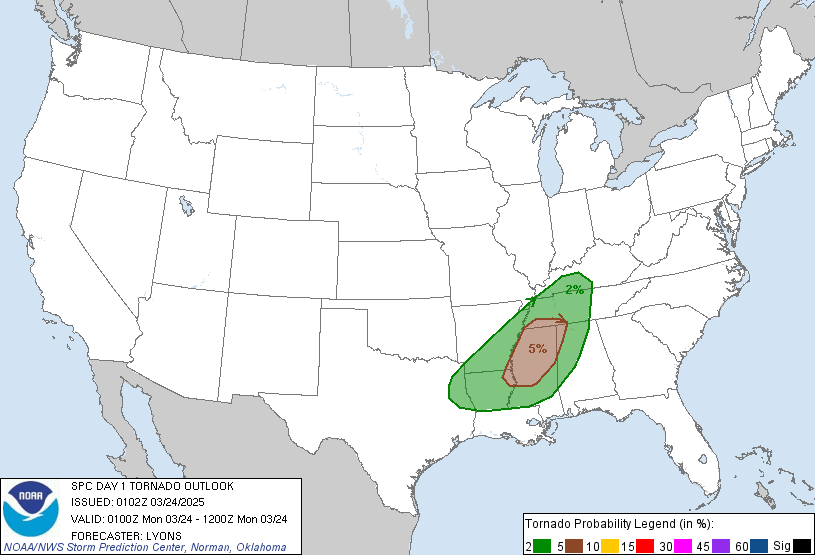For most of my life, I’ve heard that a good cold snap with overnight lows in the 20s will kill a lot of the insects – particularly mosquitos – making for a more pleasant spring and summer with fewer bugs around.
Turns out…

Cold doesn’t matter
Mosquitoes, like many other insects are ectothermic, meaning their activity level is based on the outside temperature. When it is warm, they are active, when it is cold, they are inactive. Science has shown that once the temperature gets down low enough, the metabolism slows down to the point ectothermic insects eventually die.
Hooray, no more mosquitoes, right?
“There are different phases of the life cycles that can tolerate those cold conditions,” Donald Yee, associate professor at the University of Southern Mississippi said. “The eggs can survive those freezing conditions.”
Well crud, they won’t all die, sadly.
Plus, because mosquitoes know how to seek shelter from the cold, they can hide in piles of leaves, tree bark, other detritus (dead plant material) to keep warm enough to stay alive.
“They have a short-term ability to handle those [colder] temperatures,” Yee said. “And as they get closer to winter they have a greater resistance to cold temperatures.”
Turns out that different mosquitoes – even of the same species – can handle temperatures differently. A lot like humans, mosquitoes in Maine are much more tolerant to cold weather than mosquitoes in Mississippi.
And size matters. The larger the mosquito, the more adept it is to surviving the cold. And mosquitoes can vary greatly in size (comparing one mosquito to another mosquito in size can be like comparing a human to an elephant in size) so while one species may not survive this cold, the next species will.
Most places in America have more than one species of mosquito buzzing around.
Yee offered tempered optimism for short-term mosquito numbers: “What we are most likely to see is a knock down in the adult populations, but the eggs will remain.”
Yee commented that recent research may actually suggest that a dry autumn may lead to more mosquitoes in the spring, too. Listen to the entire interview here:

